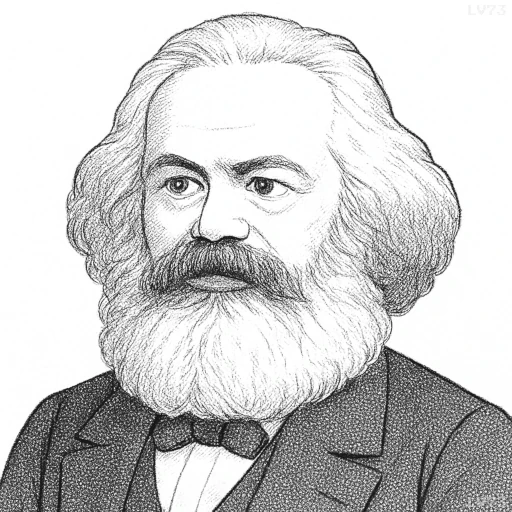“Nothing can have value without being an object of utility.”

- May 5, 1818 – March 14, 1883
- Born in the Kingdom of Prussia (Germany)
- Philosopher, economist, political thinker
table of contents
Quote
“Nothing can have value without being an object of utility.”
Explanation
In this quote, Marx emphasizes that value is fundamentally tied to the usefulness or utility of an object. Under Marx’s theory of value, the worth of a commodity is determined by the labor power that goes into producing it, but this labor is meaningful only if the commodity has utility—if it serves a purpose and meets a need. In other words, for something to have economic value, it must be useful in some way to human beings, either as a necessity or as a desired item. This stands in contrast to fetishism under capitalism, where commodities can acquire value not based on their utility or labor content but due to market conditions, speculation, or demand. Marx critiques this distortion, showing that value in capitalist economies is not necessarily tied to the actual use of the commodity but rather to how it is traded, bought, and sold.
Historically, Marx’s view of value is rooted in his theory of labor theory of value, which asserts that the value of a commodity is determined by the socially necessary labor time required to produce it. However, this value can only be realized when the commodity is exchanged or used to fulfill a need. In capitalism, though, the exchange value of a commodity can often surpass its use value—for example, in the case of speculative investments, rare objects, or luxury goods that are priced based on demand rather than their practical utility. This separation of value from utility leads to what Marx saw as the alienation of labor and the commodification of everyday life, where human beings and the products of their labor are disconnected from their true needs and purposes.
In modern economies, Marx’s idea remains relevant when considering how commodities are valued in relation to their actual usefulness. For example, in the tech industry, products like smartphones or social media platforms may be marketed as essential tools, but their value often comes from their brand prestige or their ability to drive profit for corporations, rather than their actual utility to people. Similarly, financial commodities like derivatives or stocks may have high market value, even though their connection to tangible, useful products is minimal. Marx’s critique of this disconnection between value and utility encourages a deeper look at how capitalism shapes what is deemed valuable and highlights the distortion of value that occurs when profit motives override human needs.
Would you like to share your impressions or related stories about this quote in the comments section?
